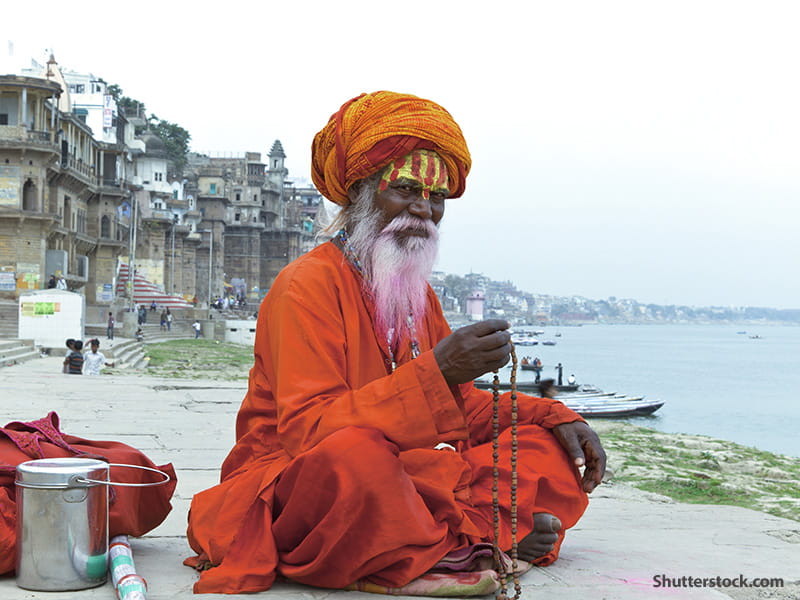If you were asked whether religion or nation was a greater part of your identity, which one would you pick? For some people, the question is like wondering which came first: the chicken or the egg. And for Indian Hindus living outside of India, the situation is complicated by the tug of two opposing nationalities.
The ire provoked by my column about Christmas and New Year's taught me one thing: Being an Indian is different from being a Hindu. You can be both (many consider themselves Hindu Indians), but you can also be either.
I began exploring answers to the question when I sent my tongue-in-cheek rant against Christmas to my nephews and nieces who are in colleges all across America. There, I thought. They will get what some of my readers didn't. They will see that I was attempting humor. Funny thing was: They didn't. Many of my nephews and nieces who grew up as Indian Americans in this country were equally offended by that column. You are giving Americans the wrong impression of Hindus by projecting intolerance, they told me. If you are living in this country, you might as well accept and enjoy American holidays, they lectured. You are so clueless, Shoba, they said.
I guess I was. I had forgotten how important American holidays are to second-generation Indian Americans, even though they grew up in predominantly Hindu households. In many ways, these youngsters identify themselves as Indian Americans rather than Hindus.
My sister-in-law in Florida, for example, is a devout Hindu, who prays before her altar every morning before going off to the hospital to treat patients. But her kids identify more with being of Indian descent than being Hindus. For them, putting up a Christmas tree is equally important as celebrating Diwali, if not more so. In fact, I would guess that Hinduism is a marginal part of their identity, even though it is an insidious part of their life. They have Hindu names: Balaji, Ravi, Nitya, Sita; many of them are vegetarians; they know Hindu bhajans even though they rarely sing them; they are familiar with Hindu holidays; and they even know a Sanskrit sloka (chant) or two.
That's OK and probably to be expected. Religion can seem superfluous when you are young and confident. It is only when you get older--when life throws you curveballs--that religion serves to sustain you. I remember my own youth, when choices seemed endless and my confidence was boundless. Life seemed like a smooth-sailing boat, and I had nary a qualm. I was an Indian in America, and I was having a blast.
Fifteen years later, I am more cautious. I know that there aren't easy answers to everything, I know that nothing is certain, I know that bad things can happen to good people, and I have encountered questions for which I have no answers. Why did my friend die at age 34, leaving behind two darling girls? Why did an entire family die in the earthquake of India and one man miraculously survive? Why do children get cancer? Life is full of imponderables. Like many, I turn to religion or faith to sustain me when I encounter these imponderables.
I have often wondered if it would have been better to raise my daughter without the boundaries religion can set up. After all, she has enough differences to make her stand out among her American peers--she looks different, has a "strange" name (Ranjini), eats different food (vegetarian). Why burden her with Hinduism as well?
Clearly, I cannot raise my daughter Christian (or Jewish) simply because she lives in a country that is predominantly Christian. Even though her national identity as an Indian American may be more important to her in her youth, she will ultimately need faith to sustain her when crises erupt. For that, the only religion I can offer her is the one I know: Hinduism.
And even though my nephews and nieces consider themselves more Indian than Hindu, perhaps they will turn to Hinduism as they get older and have kids. As the great Hindu saint Ramakrishna said, people learn the value of religion when things aren't going well in their own lives.
When I was a sophomore in college, finding my way in America, I never thought I would be reciting prayers every morning. Life changes people in ways they cannot foresee. In many cases, it brings them home to religion, a part of their identity they never realized was so important.

